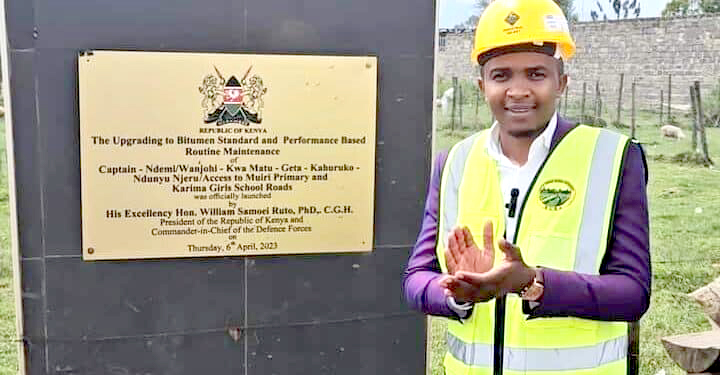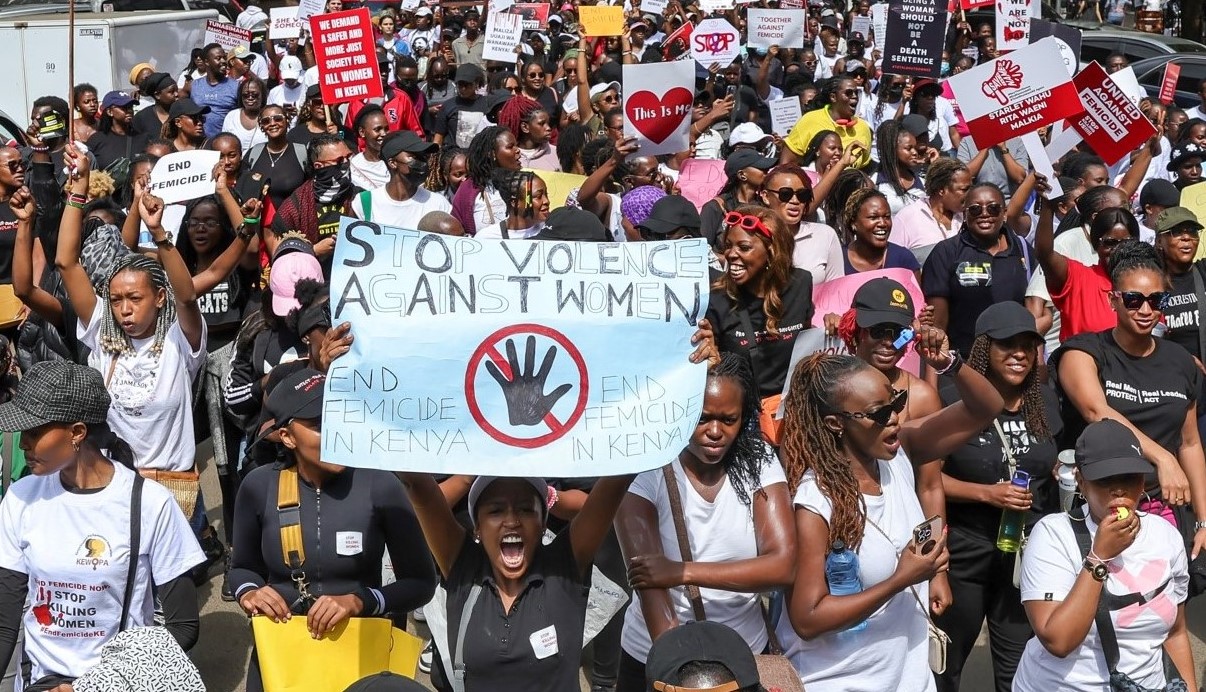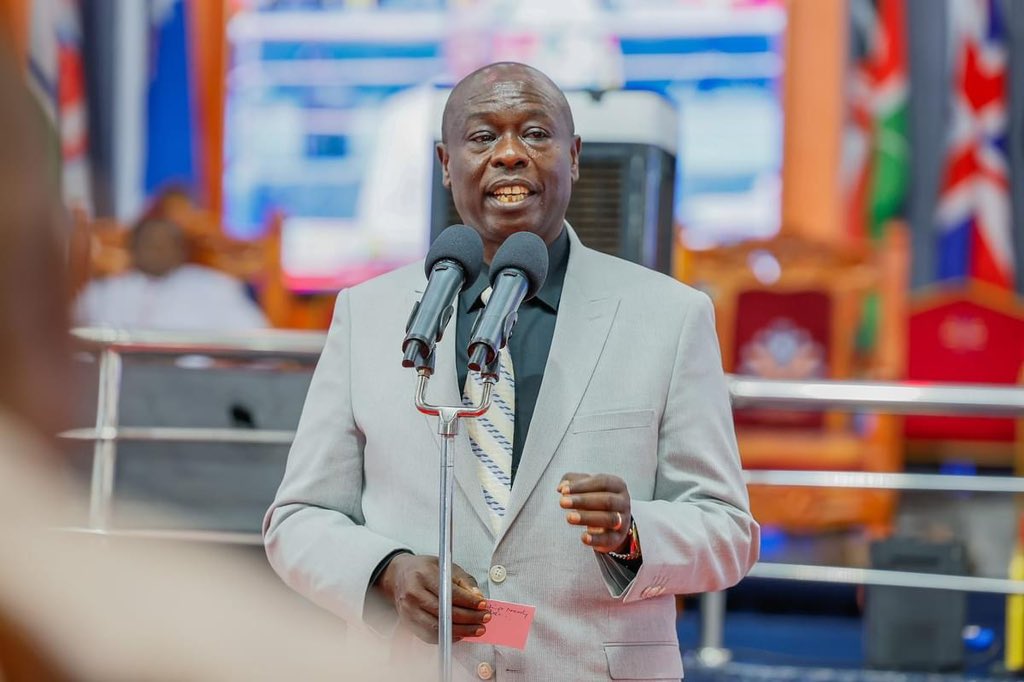Opinion: Youth uprising signals call for change to Kenya's future story

By Mohammed Doyo |
Kenya has experienced a series of protests in recent weeks that have brought the country's generational split into striking relief. Major streets in various towns have transformed into places of unrest where Gen Z voices resound with an unmistakable fervour.
These young Kenyans are seeking more than a place at the table; they want the entire socioeconomic landscape to be redesigned. They were raised in an era of rapid technological advancement and global connection.
Keep reading
- Fear not! Stand against authoritarianism by Ruto's regime, Karua tells Kenyans
- Kenya's youth unemployment epidemic: A ticking time bomb for crime, violence
- Ruto to Kenyan youths: Don't let anyone convince you to despise your country
- Kenyan artists reflect Gen Z hopes and frustrations in new exhibition
The demonstrations against President William Ruto's administration are a clear cry for substantive inclusion in Kenya's larger future story, not just for adolescent rebellion. Their energy is tremendous, their determination is unwavering, and their frustration is evident.
However, these displays mask a wealth of potential that, in the right direction, could catapult Kenya into a brand-new period of prosperity and creativity. A multipronged strategy that tackles the underlying reasons for discontent, as well as its symptoms, is required to close the growing gap between the government and its youth.
A thorough reform of the institutions that have long prioritised entrenched power structures over new talent and viewpoints is necessary to find a solution.
We need to rethink education because it is the great equaliser. College and university hallways ought to be transformed once more into arenas of democratic participation, where students may demonstrate their political prowess and refine their leadership abilities.
Instead of the existing indirect system of student elections, universal suffrage should be reinstated in university politics to develop a new generation of leaders who are familiar with the inner workings of government. These universities should foster political awareness and civic engagement rather than just generating degree holders.
The workplace needs to change as well to welcome youth's energy. It is necessary to demolish the hallmark bureaucracy that has long guarded the doors to public service. Re-evaluating, if not eliminating, experience criteria that effectively prevent recent graduates from entering government employment is a good idea.
Rethinking the retirement age is necessary because it is a complex matter in a nation where youth unemployment is a problem. We can guarantee a consistent flow of new ideas and energy into the public sector by making more room at the bottom.
However, it goes beyond merely producing jobs; it also involves establishing an atmosphere that allows youth to flourish. Financial strains on young people could be lessened by paid internships, work-study opportunities, and a redesign of the higher education loan structure.
We can remove some of the obstacles that derail enthusiastic young job seekers before they've even started their race by lowering the cost of job searching and extending the validity of required documents.
Kenya's youth are prolific creators as well as content consumers in this digital age. We can access this creative reservoir by setting up public content creation hubs, which can inspire a new generation of digital entrepreneurs.
Opportunity must be available to people outside of Kenya. A deliberate attempt to link young Kenyans with overseas educational possibilities could extend horizons and return with a newfound understanding of the country. We can raise a new generation of globally-minded Kenyans prepared to face the problems of the 21st century by bringing back the spirit of initiatives like the Kennedy Airlift of the 1960s.
The important thing is representation. The National Youth Council must be given more authority to bring about change after being perceived for so long as a helpless organisation.
We can establish a true forum for youth voices by converting it into an active, election-based organisation. This would allow young Kenyans' issues to be discussed, aired, and turned into concrete policy suggestions.
There is a role for the private sector as well. By requiring youth-oriented CSR programmes, we may establish collaborations that close the knowledge gap between education and real-world application. These programmes might facilitate the move from school to the workplace by offering beneficial networking and experience possibilities.
Finally, we must admit that youth dissatisfaction is not limited to national politics. We need to hold county governments to higher levels of accountability and openness, as they are frequently disregarded in talks of national transformation. The mishandling of regional resources feeds the unrest that eventually consumes the entire country.
There is an obvious way forward, but it is not without difficulties. We must be prepared to listen, adapt, and take decisive action in the direction of a more inclusive future.
Kenya's youth possess a tremendous amount of energy that can either be used to propel the country forward or allowed to fester into more bitterness and instability.
The writer is a public policy specialist, development practitioner, and a management strategist. [email protected]
Reader comments
Follow Us and Stay Connected!
We'd love for you to join our community and stay updated with our latest stories and updates. Follow us on our social media channels and be part of the conversation!
Let's stay connected and keep the dialogue going!
















